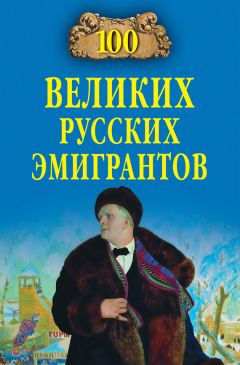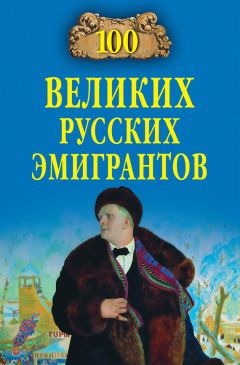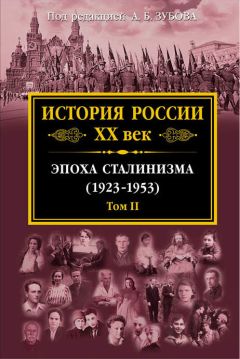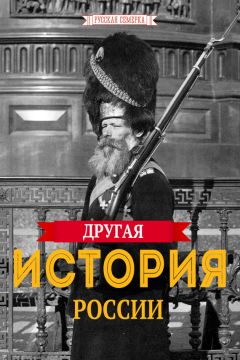И. Латыпова - Галерея российских царей
В 1554 году новоиспеченный царь устроил комедию с отречением от престола. Он собрал знатных лиц, посетовал, что его якобы не любят и не хотят видеть царем, и удалился от двора. В ответ на просьбы подданных Иван Васильевич обещал вернуться, но с условием, что, во избежание измен, окружит себя верными людьми — опричниками. Новому царскому окружению позволялось отбирать у жителей земли, дома, имущество. В 1569 году царь вместе с опричниками совершил поход на собственные северные города: Новгород, Псков, Тверь, Торжок, грабя и истребляя местных жителей. В результате Опричнины многие русские земли были доведены до обнищания, бывший богатый Новгород обезлюдел.
В 1584 году у Ивана IV появилась странная болезнь, сопровождавшаяся внутренним гниением, от царя исходил неприятный запах. От этой болезни через несколько месяцев Иван Васильевич и скончался.
Ivan became the Grand Prince at the age of three. The intrigues were being schemed around the helpless child incessantly. Exposed to the struggle and violence since his childhood, Ivan afterwards did not treat human dignity and life of other people as values. As soon as he grew up and broke out of the custody of the boyars, he began to take revenge on those who bullied the legitimate heir in his early childhood. Ivan IV turned their painful deaths into a kind of public theatrical performances. Wishing to compensate for the trials of his childhood and rise above all the princes, Ivan took on the royal title in 1547.
In 1554 the newly-baked Tsar arranged a comedy with false abdication. He summoned the nobility, complained that he had found no love to himself in his subjects who, allegedly, did not want him as the tsar, and then he withdrew from the court. In response on the requests from his subjects Ivan promised to return, but with the proviso that, in order to avoid the treason, he would surround himself with loyal people — oprichniki (his personal guard). The new Tsar’s milieu was allowed to deprive the other people of their land, houses, and property. In 1569, the Tsar, together with oprichniki, launched a campaign against the northern cities of his own country — Novgorod, Pskov, Tver, Torzhok, plundering and slaughtering the population. Oprichnina reduced many Russian lands to poverty; Novgorod, once wealthy, became deserted.
In 1584, Ivan IV fell ill with a strange disease, manifesting an internal decay; the tsar emanated an unpleasant odor. A few months later this disease caused his death.
Федор Иванович Feodor Ivanovich 1584-1598
Фёдор Иванович — сын Ивана Грозного, последний правитель из династии Рюриковичей. Этот царь был слаб здоровьем физически и умственно, поэтому не мог самостоятельно управлять государством. Отец передал ему власть, но назначил группу бояр для опеки над наследником. Вскоре из ближайшего окружения царя выдвинулся наиболее хитрый Борис Годунов, на сестре которого был женат Фёдор Иванович. Постепенно реальная власть оказалась в руках шурина.
Для Фёдора Ивановича было непосильным даже участие в придворных церемониях, он не смог дождаться окончания собственной коронации — удалился, передав атрибуты власти боярам. День он коротал в забавах с придворными шутами, смотрел бои с медведями, много времени проводил в молитвах.
В правление Фёдора Ивановича усилилась крепостная зависимость крестьян, им запретили переходить от одного помещика к другому, в 1597 году царь подписал указ о пятилетнем сыске беглых крепостных. В 1589 году было введено патриаршество, митрополит с этого времени стал именоваться патриархом.
В 1597 году Фёдор Иванович заболел, у него пропали зрение и слух. Доктора не смогли избавить государя от недуга. При исследовании останков в костях монарха был найден мышьяк.
Feodor Ivanovich was a son to Ivan the Terrible, the last ruler of the Rurik dynasty. He was rather feeble both in mind and body, and unable to rule the state on his own. His father bequeathed to him the throne, but appointed a council of boyars to have the heir seconded and guided. The cleverest of the boyars, Boris Godunov, whose sister was married to Feodor, soon stepped forth from the court circle. Gradually, the real power was concentrating in the hands of tsar’s brother-in-law.
Feodor considered unbearable even the participation in the ceremonies of the royal court, he could not endure his own coronation — he parted, passing the trappings of royal power to the boyars. His days were whiled away with merry-making in the company of the court jesters or watching the bear-fightings; much time was spent in prayer.
During the reign of Feodor Ivanovich, the serfdom of the peasants became harder, they were forbidden to left one landlord for another. In 1597, the tsar signed a decree on the five-year manhunt of runaway serfs. In 1589, the Patriarchate was introduced by the Church, and the Metropolitan became known as Patriarch since that time.
In 1597 Feodor fell ill — he lost his sight and hearing. The doctors could not deliver the sovereign from the disease. A modem-time investigation of his remains has discovered the arsenic in the bones of the monarch.
Борис Годунов Boris Godunov 1598-1605
Борис Годунов — шурин Фёдора Ивановича. При жизни царственного зятя Борис Годунов являлся фактическим правителем. В его руках на несколько долгих лет сосредоточилась вся власть в государстве. После кончины Фёдора Ивановича решение Земского собора вывело боярина Годунова на престол.
Новый царь стремился к мирной внешней политике, старался сблизиться с западными государствами, заключил выгодный для России мир со Швецией. Он приглашал архитекторов, строил Москву, хотел учредить высшую школу, но духовенство не позволило осуществить эту идею.
В 1600-х годах на Руси начался сильный голод из-за неурожаев. Появились недовольные царской властью. Вдобавок ко всему разнесся слух, что жив брат Фёдора Ивановича, царевич Дмитрий, считавшийся убитым (возможно, при участии Годунова). Чтобы укрепить власть, государь по примеру Ивана Грозного начал проводить репрессии, что не добавило ему популярности.
В 1605 году Годунов скончался. Лжедмитрию удалось захватить престол. Он выбросил тело царя из Кремля, жену и сына Годунова убил, а дочь удерживал у себя пленницей, затем отправил в монастырь.
Boris Godunov was a brother-in-law to Feodor. During the reign of his royal relative, Boris Godunov was de facto ruler. All the state authority had been concentrated in his hands for several years. On the death of Feodor Ivanovich, Zemskiy Sobor (National Assembly) made a decision that brought Godunov to the throne.
The new tsar preferred a peaceful foreign policy, trying to come to friendly terms with the western countries; he signed a peace treaty with Sweden profitable to Rus. He would invite architects and rebuild Moscow, and wanted to establish a high school institution, but the clergy prevented him from implementing this idea.
In the 1600s, a famine struck Rus, due to several-years crop failures. There were many dissatisfied with the government. On top of that, a rumour was spread that Feodor’s young brother, Prince Dmitriy, who was considered dead (allegedly, his murderers were instigated by Godunov), escaped the assasination. The tsar, to strenghten his position, followed the example of Ivan the Terrible and started the repressions, which did not add to his popularity.
In 1605, Godunov died. False Dmitriy managed to usurp the throne. The impostor had the body of the tsar thrown out of the Kremlin and Godunov’s wife and son murdered, while the daughter was held captive, and then sent to a nunnery.
Василий Иванович Шуйский Vasiliy Shuiskiy 1606-1610
Василий Шуйский был приближенным Ивана Грозного, причем ничем не выделялся среди других бояр, затем верно служил Борису Годунову. После смерти Годунова он с легкостью присягнул Лжедмитрию и подтвердил перед народом, что тот является подлинным царевичем. Однако новому царю Шуйский не стал верным слугой — он организовал заговор, в результате которого царя-самозванца убили. Шуйский с помощью сторонников вступил на престол. Отчасти он тоже был самозванцем. Земское собрание его не выбирало. И не выбрало бы, если бы было созвано. Шуйского не любили подданные, не особо уважали даже приближенные бояре. В продолжение всего правления Василию Ивановичу приходилось бороться с «призраком» убитого царевича Дмитрия. Недовольный властью народ поднимал бунты, их предводители называли себя спасенным царевичем. Поляки воспользовались нестабильной ситуацией и напали на Россию. Солдаты неохотно сражались за Шуйского, и его войско было разгромлено. Народ в Москве устроил восстание и потребовал от Шуйского отказаться от престола. Тот вынужден был подчиниться.
Скончался Василий Иванович в 1612 году в Варшаве, будучи пленником польского короля Сигизмунда.
Shuiskiy was a courtier of Ivan the Terrible, and there was nothing to distinguish him from other boyars; then he faithfully served to Boris Godunov. On the death of Godunov, he did not hesitate to vow the allegiance in favour of False Dmitriy and confirmed to the people that the latter genuinely was prince. However, Shuiskiy did not prove to be a faithful servant to the new tsar — he arranged a plot resulting in murder of the impostor.
Shuiskiy came to the throne, supported with his clique. In a way, he was an impostor, too, as he was not elected by Zemskiy Sobor. Be it summoned, Shuiskiy would have had no chance. He was disliked by his subjects, and even the boyars felt no particular respect to him.
During the whole reign, Vasiliy Ivanovich had to contend with the «ghost» of assasinated Tsarevich Dmitriy. The people, dissatisfied with the authorities, raised the revolts, and their leaders called themselves the tsarevich escaped. The Poles took advantage of the unsteady situation and invaded Russia. Russian soldiers were reluctant to fight for Shuiskiy, and his army was defeated. The Muscovites gave the uprising and demanded the abdication of Shuiskiy. He had to obey.
Vasiliy died in 1612 in Warsaw, as a prisoner of Sigismund, King of Poland.
Михаил Романов Mikhail Romanov 1613-1645
Михаил Фёдорович — первый самодержец из рода Романовых. Его выбрали решением Земского собора 1613 года как дальнего родственника прервавшейся династии Рюриковичей — Михаил Романов приходился двоюродным племянником царю Фёдору Ивановичу. Михаила Фёдоровича не готовили для трона, не дали нужного образования. А время, когда шестнадцатилетний правитель взошел на престол, было непростым. Государство находилось в состоянии войны с Польшей и Швецией. Внутри страны бродили шайки разбойников и разоряли мирных жителей, не хватало продовольствия. Отразилось Смутное время и на царской казне. Михаил Фёдорович был вынужден искать способы как можно скорее сократить дефицит средств. Он собирал подати, налоги, брал взаймы.
В 1617 году Михаил Фёдорович заключил со Швецией Столбовский мир, невыгодный для России из-за потери выхода к Балтийскому морю, но все-таки он давал передышку в войне. Российские города не были достаточно укреплены, народ, страдавший и от разбойников, и от поборов правительства, отказывался сражаться. Ослабевшему государству необходимо было набирать силы. В 1634 году Россия заключила мирный договор с Польшей.




